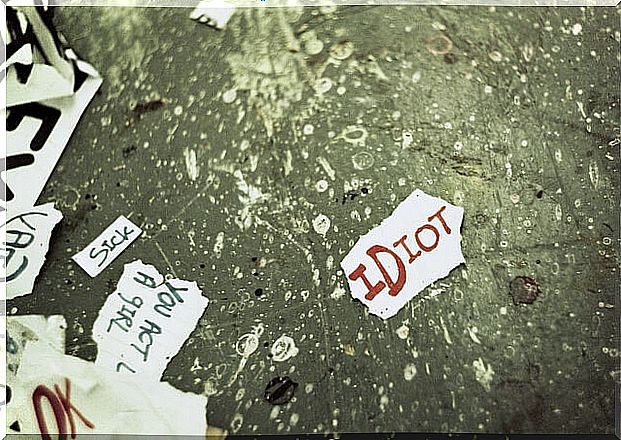The Differences Between Constructive And Destructive Criticism

We have all experienced criticism at one time or another. It’s actually something we are all open to on a daily basis. However, the intention behind criticism can be very different. This depends on several factors.
You often tend to run away from criticism. It is certainly not something you usually like. In fact, your ego rebels against it, and you become defensive. It’s because you feel like you’re being attacked.
However, it is often also a positive element of criticism. In fact, you need to be aware of it in order to recognize whether you are being constructively or destructively criticized.
People who criticize usually have some form of intention, for better or worse. Sometimes, however, the goal does not match the message. In fact, they may try to help, but achieve the opposite effect.
If you want to take advantage of constructive and reject destructive criticism, you must learn to distinguish between the two types. This is also useful if you want to use constructive criticism yourself.
Characteristics of constructive criticism
Constructive criticism always comes with the intention of helping the other person. Tell them what they can improve and how they do it. Give them specific details. Everything done without superiority or arrogance.
Say, for example, that your partner has left all his things behind. Constructive criticism may involve saying:
– It would have been nice if you could pick up the things you have lying around. I have plans to vacuum afterwards.
On the other hand, destructive criticism can be as follows:
– You are a wandering disaster and always leave your things behind. You do not care about anyone but yourself.
On this basis, we can say that the main features of constructive criticism are the following:
- It indicates what needs to be improved.
- The language used is not aggressive or inflamed.
- Respect is used.
- If necessary, arguments are given to explain the situation.
- It is cooperation and the goal of helping.
- It is equality. In other words, one does not see himself as better than the other.

Still , people may see it as unacceptable, even if the criticism is constructive. Therefore, they refuse to accept it, and therefore will not learn anything from it. They may even feel offended, which can lead to conflict.
Characteristics of destructive criticism
With destructive criticism, anger and contained aggression are shown. People come up with bad arguments like, “I do not like it,” “You do not do it right,” “You are stupid.” In fact, there is never anything interesting or useful offered in this type of messaging.
However, people who use this type of malicious message tend to feel insecure and vulnerable. They try to show superiority because in reality they feel weak. Furthermore, they are characterized by feelings of low self-esteem and insecurity.
The most important characteristics of destructive criticism are the following:
- It focuses on the negative aspects of the person.
- The language used can be aggressive.
- No arguments are offered to help the person understand the criticism.
- There is no explanation on how to correct or correct possible errors.
- It is not a positive contribution.
- The purpose is to hurt and show superiority over the other person.

When this type of criticism is given attention and taken seriously, it can greatly affect the person at the receiving end. They may feel humiliated and do not know what to do to make up for their perceived mistakes.
Learn to accept criticism
To know if a message is important or not, you need to identify what kind of criticism it is. Then you can decide if there is something you need to pay attention to or ignore.
In the face of destructive criticism, being able to identify it will help you avoid unnecessary suffering that it may cause you. The suffering of believing that you are to blame for something that is not right.
You must always be careful in the face of destructive criticism. In fact, if you have a bad day mood, it tends to affect you more. This is because, if you accept this kind of criticism without a doubt, it will make you feel even worse.
On the other hand, you must also pay attention to constructive criticism. Because, if you do not, you can confuse it with destructive criticism and be offended.
You will undoubtedly find yourself at the receiving end of both types of criticism. By learning to distinguish between the two, however, you will be able to contribute to your own well-being and your personal development.









